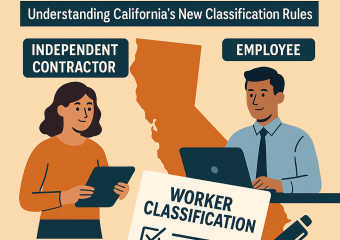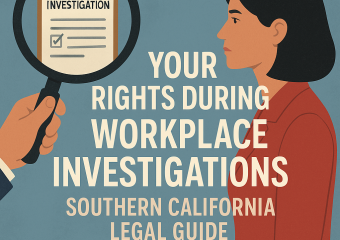Legal Essentials for SoCal Businesses: Compliance, Contracts & More
Compliance, contracts, and a host of other legal considerations form the backbone of a flourishing business in Southern California (SoCal). For entrepreneurs and business owners looking to establish or maintain their operations in this vibrant economic landscape, understanding the legal necessities is crucial not only for growth but also for protecting against potential legal troubles that could threaten a company’s stability.
Understanding Compliance in SoCal
Compliance entails adhering to a wide array of laws and regulations that govern business operations. In SoCal, this could include specific state laws regarding employment, environmental rules, and numerous local ordinances that vary from one city to another.
One primary compliance area SoCal businesses must navigate is employment law. California is known for having some of the most stringent labor laws in the U.S., which cover minimum wage, overtime payments, mandatory breaks, and anti-discrimination protections among other employment issues. To ensure compliance, businesses should invest in regular training sessions for their HR staff and periodic audits of employment practices.
Environmental regulations are particularly rigorous in California, especially laws related to air quality, waste management, and water use—crucial for businesses in industries like manufacturing, construction, and agriculture. Companies in these sectors must ensure they have the right permits and adhere to state and federal standards to avoid hefty fines and legal actions.
Navigating Contracts and Agreements
Effective contract management is essential for any business, large or small. Contracts in SoCal, whether they are with suppliers, customers, or employees, should be crafted carefully to ensure clarity, fairness, and legal enforceability. Clear contracts not only minimize the risk of disputes but also provide a secure framework for business operations.
It’s advisable to involve legal professionals during the drafting and review of any significant contracts. This practice helps protect your assets and ensures that the agreements align with all relevant laws and corporate policies. Businesses should focus on including comprehensive terms regarding dispute resolution, confidentiality, and liability in their contracts to safeguard their interests.
Intellectual Property Protections
Protecting intellectual property (IP) is another critical concern for businesses, particularly in tech-driven regions like SoCal. IP law covers patents, copyrights, trademarks, and trade secrets—all of which can be integral to a company’s identity and competitive advantage.
For technology companies and startups, securing patents can prevent competitors from copying innovations. Copyrights are crucial for creative industries such as film, music, and publishing, ensuring that original works are legally protected. Trademarks protect symbols, names, and slogans used to identify businesses or products.
Understanding how to effectively manage and protect your IP assets can be a significant advantage in maintaining a competitive edge in SoCal’s dynamic market.
Regulatory Compliance and Industry-Specific Laws
Specific industries are subject to additional regulatory burdens. For instance, tech companies may need to comply with privacy laws like California’s Consumer Privacy Act (CCPA), which imposes new data protection obligations on entities that collect personal information. Meanwhile, companies in the healthcare sector are typically subject to regulations like the Health Insurance Portability and Accountability Act (HIPAA), governing the security and privacy of health information.
Compliance in these specialized areas can be complex and requires in-depth knowledge of both the legal landscape and the specific industry.
Conclusion
For businesses operating in Southern California, legal preparedness involves a robust understanding and proactive management of compliance, contracts, and IP rights along with a keen awareness of the regulations specific to their industry. By embedding legal diligence into their operational framework, SoCal businesses can ensure they not only survive but thrive in this competitive environment. Investing in competent legal advice and resources is indispensable, providing peace of mind and allowing business owners to focus on growth and innovation rather than legal uncertainties.




